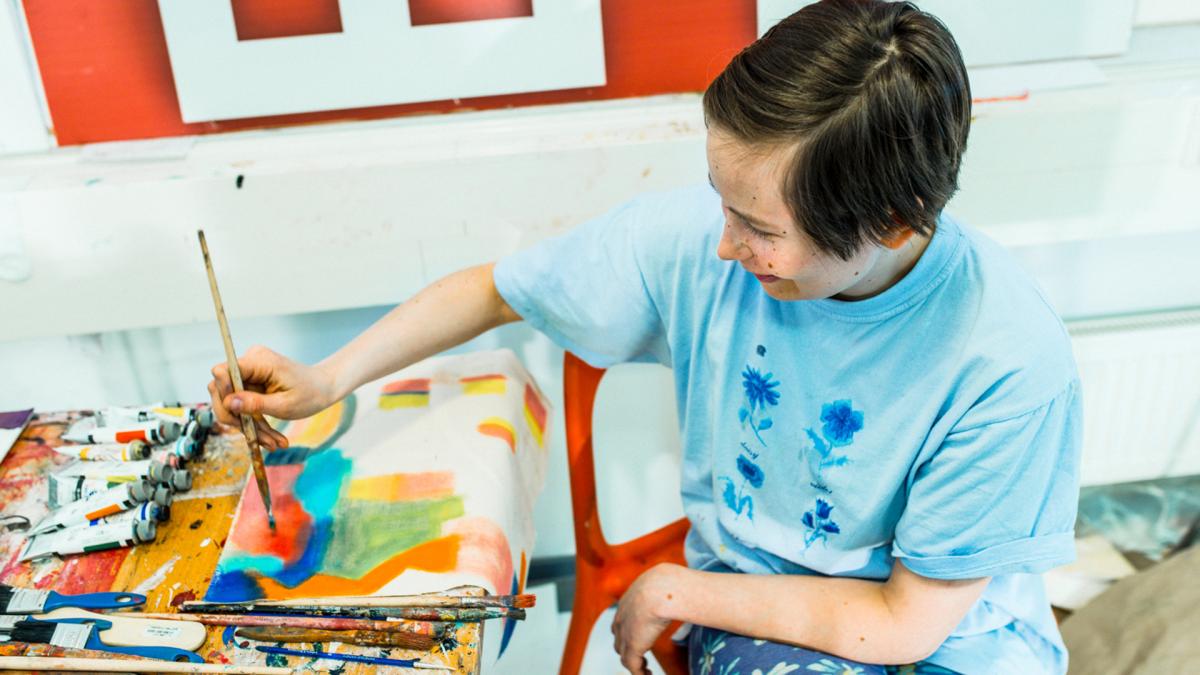Teachers’ competence and high-quality courses draw praise from students
According to the feedback given, Uniarts Helsinki’s students are especially satisfied with their teachers’ artistic competence, the content of courses and the international opportunities provided by the university. In the future, development measures will focus on student wellbeing.

Uniarts Helsinki collects feedback from its current students and its newly graduated students on a continuous basis. The feedback is used for developing the teaching and other activities of the university.
In the 2019–2020 academic year, Uniarts Helsinki took part in two national feedback surveys: Bachelor’s Graduate Survey and career monitoring surveys for masters and doctors. In addition, the university also carried out an internal rector’s questionnaire, and it also participated in the International Student Survey for the first time.
Qualified teachers and high-quality courses
According to the rector’s questionnaire, nine out of ten bachelor’s and master’s degree students at Uniarts Helsinki rated the artistic competence of the university’s teachers as good or excellent. Over 70% of the respondents rated the teaching content on courses as good or excellent.
Students also gave positive feedback on the international opportunities provided by the university: nine out of ten respondents found their exchange studies or practical training period useful.
Students also gave compliments on the services of the university’s library and IT departments. Nearly nine out of ten respondents were satisfied with the performance and exhibition facilities. Respondents had good things to say about the atmosphere and especially the support from other students, too.
Based on the rector’s questionnaire, Uniarts Helsinki will have to develop support measures for student wellbeing, the quality of personal feedback, support for study planning and study-related communications. Uniarts Helsinki must continue to put a strong focus on the prevention of inappropriate treatment and discrimination.
Top results in the Bachelor’s Graduate Survey
Uniarts Helsinki received the best overall results in the national Bachelor’s Graduate Survey. According to the survey, Uniarts Helsinki’s bachelor’s graduates find that the teaching they receive is of high quality, and they are satisfied with the interaction they have with teachers. Their programme provides an opportunity to discuss and work with other students and develop their career skills.
Based on the Bachelor’s Graduate Survey, student wellbeing and study loads, in particular, are things that the university will have to work on.
Graduates would recommend Uniarts Helsinki to other people
Respondents in the career monitoring survey appreciate the way university studies developed their creativity and find that it’s a very meaningful skill in terms of their career. They are happy to recommend their education to other people.
Over 80% of the respondents to the career monitoring survey for doctors are pursuing a career that meets their goals. Two thirds of the respondents are satisfied with their doctoral degree in terms of their career.
According to the respondents, their doctoral education has developed their analytical and systematic thinking skills, information retrieval skills and self-direction. The respondents find that these skills are also very meaningful in the working life.
Based on the career monitoring surveys, Uniarts Helsinki will now develop the way entrepreneurship is presented as a career alternative for artists and how studies support students’ teaching, guidance and cooperation skills.
The quality of education attracts students from abroad
One of the main purposes of the International Student Survey is to find out what kinds of things matter the most when international degree students make decisions on where they want to study.
When it comes to applicants to Uniarts Helsinki, the most essential factors include quality of education, standard of teaching, range of study opportunities available and teachers’ competence.
Feedback helps develop operations
The conclusions drawn from the questionnaires will be utilised in joint curriculum work and planning of future operations.
The results will be discussed in autumn 2020 in Uniarts Helsinki’s unit meetings and by the student wellbeing group, the Student Union Board and the university’s equality committee, for example.
Further information
Vice Rector for Education Lauri Väkevä